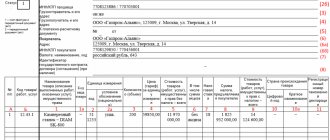In what cases is this document needed?
When investigating and familiarizing yourself with the materials of a crime, a petition from interested parties is required. An exception to the rules is in procedural cases when the inquiry officer or investigator has an obligation established by law to familiarize a specific person with the materials. For example, the accused and the victim are required to see the resolution that is issued for the purpose of ordering a special investigation into the case. At the end of it, they will learn the expert's opinion.
After completion of the preliminary investigation, the case is transferred to the court. But before that, they must be shown to the defense and the accused person. In this situation, an application from them is not necessary.
IMPORTANT: if a criminal case is suspended or terminated, the law does not oblige investigators and interrogators to acquaint the defense and the accused with its materials.
A criminal case requires the parties concerned to possess the facts and have an accurate knowledge of its circumstances. Therefore, participants have a need to document the facts.
Proof
When familiarizing yourself with the case, the accused and his defense lawyer need to be very attentive to the study of the evidence that testifies against the alleged culprit. This is especially true for physical evidence that you can touch and see how it is packaged and stored, whether the sealed package has been opened, and whether this item has been used by anyone else.
Physical evidence in a criminal case must be presented by the investigator for familiarization with it by the defense attorney and the accused. In the event that the investigator does not have the opportunity to provide this evidence to the participants in the process for review, he must make an appropriate decision.
The procedure for familiarizing yourself with the materials of a criminal case
The preliminary investigation ends with familiarization with the criminal case. The trial stage will not begin until the parties receive information from its materials.
The investigative authorities provide interested parties with materials, evidence, and video footage for reading.
The investigator has no right to limit the time the defense needs to read the materials. Except in cases where the lawyer deliberately delays the process. The judge decides on this. If he decides that the defense attorney is taking too long to become familiar with the case, he may limit the attorney.
After reading the materials, the investigator makes a decision to end the proceedings in the case. The materials are submitted to the court.
Victim's rights
They are indicated in Art. Law 216:
- Study of the protocols drawn up in his presence by the investigator.
- View the expert's report.
- Making copies of case materials: decisions opening a criminal case, its termination or assignment. As well as papers assigning him the status of a victim.
- Studying requests received from other participants in the process.
Rights of the defendant
They are indicated in Art. 217. At the request of the accused, the interrogating officer will provide him with materials, including photographs and videos. Upon request for familiarization, the accused and the defense attorney familiarize themselves with the materials separately. If several people take part in the proceedings as accused, then the order of familiarization with them is established by the investigator.
The materials related to the criminal case are quite voluminous. The lawyer and his ward are not limited in time during the familiarization process. They can take scans from documents. If the information they contain is a state secret, then it cannot be photographed, since it is stored only in a criminal case.
After completing the acquaintance, the investigator asks the accused if he has any statements or petitions. Finds out who is summoned to court for questioning by the defense.
The accused has the right to insist:
- With the participation of jurors: this is provided for in paragraph 2 of Art. 2.1. Part 2 Art. 30 of the Code. The representative of the investigation is obliged to explain to the accused the specifics of the consideration of his case, as well as the algorithm for appealing the court verdict. If the case involves several people in the status of accused and one of them does not want to cooperate with the jurors, then the investigator separates his case into separate proceedings. If this cannot be done, the case is tried as the majority of the accused wants in one case.
- On the consideration of his case by a triad of judges who belong to a court of general jurisdiction.
- About a special order.
- On holding preliminary hearings in situations established by Article 229.
An example of one court verdict
A citizen committed a burglary, after which he sold all the stolen property through a friend and made money from it. This citizen spent the illegally obtained funds to pay off a loan debt that he had not paid for a long time, which was confirmed by bank employees and video camera recordings.
As a result of search activities, the man was detained, after which he realized his guilt and repented of his actions. The court found him guilty of the crime and sentenced him to 1 year of suspended imprisonment with a fine of 60 thousand rubles.
From the above example it is clear that judicial practice in criminal cases is almost always the following: the court imposes a punishment on offenders that has nothing to do with isolation from society, because they are aware of their guilt and can correct themselves outside the colony.
Contents of the petition for familiarization with the materials of the criminal case
The request to familiarize yourself with the case materials does not have a form strictly regulated by law. Written by hand, following the structure of the document:
| Part of the petition | Description |
| a cap | it is placed in the left corner of the document, information about the applicant and the place of submission of the document is entered |
| Name | indicates that this is a petition and the purpose of its preparation |
| main part | it states what data the applicant wants to receive, the need to make copies of documents |
| application | it is indicated on what basis the citizen gets acquainted with the data from the case, his last name, first name, patronymic is written below and his signature is placed |
How to prepare an application?
Defender
The lawyer acts on behalf of the client; with his permission, he gets acquainted with the materials, but first draws up a petition. The goal of the defender is to protect the rights and interests of the ward. The lawyer confirms the authority of the defense attorney to the investigator, otherwise access to the information will be denied.
The structure of his petition contains the following points:
- Information about the place of application.
- Information about the lawyer, the grounds for representation.
- Materials to review.
- Order data.
Accused
He has the right to get acquainted with the materials of the case that have been collected against him. The petition header in this situation will look different than in the case of a lawyer. Changes are being made to the main text of the document. The accused points to the protocols and testimony, his interrogations.
Victim
Art. 216 indicates that the victim has the right to be aware of the data that forms the basis of the criminal case. The header of the document is filled out according to the general template with the data of the person to whom it is addressed. The list of documents that the victim would like to see is included in the petition.
Protection
Every suspect and accused in a criminal case has the right to receive qualified legal assistance from a lawyer. If a given participant in the process cannot afford to hire and pay for such a specialist on his own, then he should be provided with a public defender who will provide services to his client free of charge.
In modern times, the services of a criminal lawyer are quite expensive, and not all defense lawyers meet their client’s expectations. It also happens that a government lawyer performs his functions much better than a defense attorney who has been paid a lot of money.
Also read: What responsibility does the person who committed the crime bear under Article 158 Part 1 of the Criminal Code of the Russian Federation
Before contacting any lawyer, you need to study his practice very well, if he has one, ask your friends about him and read reviews about him on the Internet. In addition, the principal and his lawyer simply need to find a common language, otherwise joint work aimed at protecting and representing the interests of the accused will not yield any results.
Before concluding an agreement with a lawyer, you need to carefully study each clause of the contract and, if necessary, change it. The services of a lawyer in criminal cases must not only be described on paper, but also clearly deciphered point by point, so that in the event of a losing case, it is possible to return part of the amount paid to the defender.
Structure of the protocol for familiarization with the case
The protocol confirms that familiarization with the materials of the criminal case has been completed. According to Art. 166, 167 of the Code of Criminal Procedure, it is drawn up if the accused refuses to familiarize himself with the case materials, or does so incompletely. The accused has the right to state the reasons for the refusal. If he gets acquainted partially, then the document indicates the start and end dates of the acquaintance for each day.
The protocol consists of two main parts:
- A record is made that the accused was explained his rights under Art. 31, part 3, clause 1.
- The volume of criminal case materials that were presented for review is specified: the number of volumes, numbered sheets, audio and video materials.
In addition to the information specified in the two parts of the document, the investigator must record the facts of the defense’s repeated appeal to any of the volumes of the criminal case and the making of copies from them. In addition, the fact that persons who take part in the hearing on the defense side have been summoned to court for questioning. For example, experts, witnesses. A list of these persons is attached to the protocol.
The document is signed:
- the accused;
- defender;
- translator;
- investigator.
The number of signatories depends on those taking part in the criminal case. If the accused refuses to sign this document, then a special note is made in it. The defender also has the right not to ratify the protocol; his disagreement with it is reflected in this document, as well as comments made on the content.
Arbitrage practice
Currently, judicial practice is structured in such a way that all criminal cases that reach the stage of judicial review and have a sufficient amount of evidence collected by the prosecution always end in a guilty verdict. The percentage of acquittals is very low and is practically not allowed by the prosecution.
Judicial practice in criminal cases relating to road traffic accidents, only in one out of ten verdicts completely acquits the innocent driver; in other cases, unlucky drivers are sentenced to real terms and serve their sentences in prison, thereby receiving a criminal record and a debt as compensation for moral harm to victims, which is usually paid only after the convicted person is released.
While for intentional crimes, the courts give suspended sentences to the perpetrators and the opportunity to reform outside of isolation from society.
What case materials are not subject to disclosure?
According to Art. 161 of the law, information from the preliminary investigation is not subject to disclosure. The exception is cases when representatives of law enforcement agencies or the prosecutor allow the publication of information that forms the basis of the preliminary investigation. But only to the extent that they consider acceptable and if the publication does not contradict the rights of the participants. If the data that is subject to disclosure concerns personal life, disclosure occurs only with the approval of the participants in the criminal case.
Representatives of law enforcement agencies warn participants in a criminal case, including the lawyer in the trial, that it is unacceptable to disclose information that has become known to them during the investigation. A subscription to this effect is required under Art. 161, part 2. If information becomes known to third parties due to the guilt of the officials who disclosed it, criminal liability is provided.
Information that is not subject to publication includes not only the materials of the criminal case, but also the facts of procedural and investigative actions, their order and content.
Where is the right to familiarize yourself with the materials of a criminal case secured?
The Code of Criminal Procedure provides for several similar articles regarding Article 217:
- 16;
- 51;
- 53;
- 172;
- 215;
- 218;
- 219;
- 7;
- 325
The above-mentioned provisions of the law establish the sequence of familiarization of participants in a criminal case with its materials, holding preliminary hearings, protecting the legitimate interests and rights of accused and convicted persons, the procedure for preparing, transferring, and considering applications and petitions.
What to do if your application is rejected
Response actions depend on the procedural status of the participant whose application was denied and the stage of the criminal case.
For example, the victim approached the investigator with a request to familiarize himself with the case materials during his investigation. A law enforcement agency representative refused him. And this is legal, since a person in the status of a victim will be able to familiarize himself with the materials after a preliminary investigation. And during the process, he has access to procedural documents that were obtained only with the participation of the victim.
The defense attorney submits a petition to the investigator during the investigation, which is nearing completion. A representative of a government agency refuses him. This is illegal, but this often happens because management requires investigators to investigate criminal cases as quickly as possible (for example, for positive statistics). But the lawyer’s application to reclassify his client’s offense to another article will be illegal.
Important: the validity of the reasons for refusal depends on the specific situation of filing an application to familiarize yourself with the materials.






